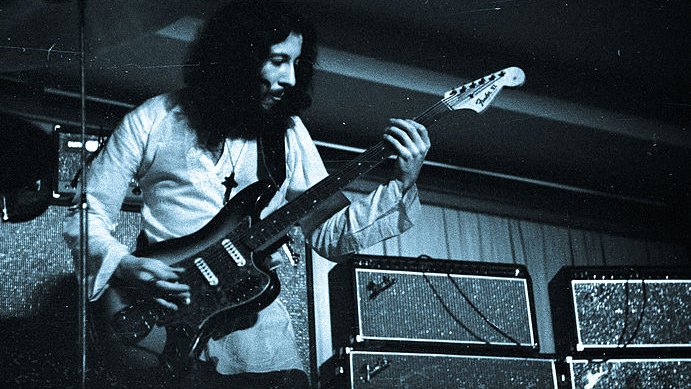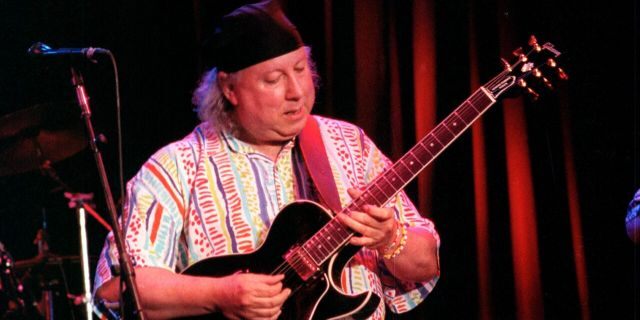See, “Fleetwood Mac,” the name at least, was kind of a joke.
The band was formed in 1967, in the height of the British Blues Rock surge, which also included John Mayall’s Bluesbreakers, from which former Yardbird Eric Clapton would emerge and make a bigger name for himself with Cream. Same goes for Jimmy Page who, instead of calling the next venture “The New Yardbirds” would adopt the group name of Led Zeppelin.

According to BBC.com, “Green and drummer Mick Fleetwood came together after Green’s stint filling in for Clapton in John Mayall’s Bluesbreakers. Green and Fleetwood then convinced bassist John McVie to join the band as bass guitarist, in part by naming the band Fleetwood Mac.”
Therein lies the joke. Green was recognizably the leader of the band, the singer, songwriter, and guitarist…the three job descriptions that tend to hog the entirety of the spotlight, whereas in most bands, the rhythm section just gets lumped in as the rhythm section, the guys the groupies probably aren’t chasing.
Green wrote “Black Magic Woman” which ended up being a big hit in the U.S. when Santana covered it. Additional recognition came the same way, as Judas Priest made some headway with their version of “The Green Manalishi” off 1978’s Killing Machine.

Respect for Green comes from far and wide. Rolling Stone magazine ranked Green at number 58 in its all-time list of the 100 greatest guitarists, and this past February, Mick Fleetwood, David Gilmour, Billy Gibbons (ZZ Top) and others performed at a celebration of the band’s influential, but not often recalled early years.
Another well-known song from this era is “Oh Well,” and you likely know about it from the multitude of cover versions it garnered, not the original. The better-known edition of Fleetwood Mac in the 1970’s featured guitarist Lindsay Buckingham giving it a solid workout. The group Haim as well as Joe Jackson have had time with the tune’s lyrical side-eye to human arrogance:
“Now when I talk to God
I know he understands
He said ‘stick by me and I’ll be your guiding hand’
But don’t ask me what I think of you
I might not give the answer that you want me to”
Fleetwood Mac did very well and was respected, but the group’s mega-stardom was many years to come. By this time, Green was gone having left the band “after a last performance in 1970 as he struggled with his mental health,” cites the BBC. “He was eventually diagnosed with schizophrenia and spent time in hospital in the mid-70s.”

The world of popular music from divergent genres took time to mourn Green’s passing, from Ultravox’s Midge Ure to Whitesnake and Deep Purple’s David Coverdale. Yusuf/Cat Stevens Tweeted this morning, “God bless the ineffable Peter Green, one of the unsung heroes of musical integrity, innovation and spirit. When I heard he left Fleetwood Mac in 1970 to get a real life and donate his wealth to charity, he became something of a model for me.”
Billy Idol called Green an “amazing 60’s guitarist. B.B. King said out of all the British blues guitar players of the 60’s and early 70’s, he was the only one who gave him chills!”
Kirk Hammett, guitarist for Metallica, also known for a version of “The Green Manalishi,” simply Tweeted a photo of himself upon hearing the news, head hung solemnly.
There have been many people to come and go from beneath the Fleetwood Mac organization, including Jeremy Spencer; Danny Kirwan (1950-2018); Bob Welch (1945-2012), who wouldn’t have his big Fleetwood Mac moment until after he left the band, taking his song “Sentimental Lady” with him to achieve success; and even Buckingham, another victim of the revolving door.
But it really all comes down to one man, named neither Fleetwood nor Mac(Vie). Even those who know nothing about this tumultuous past owe him a debt for kicking it all off.
Funny, that.